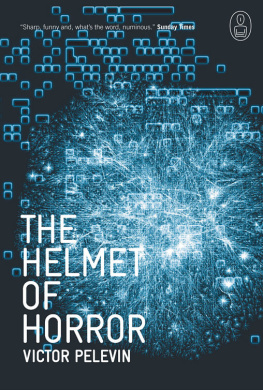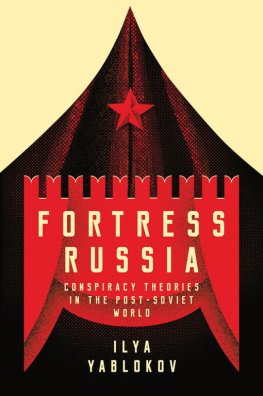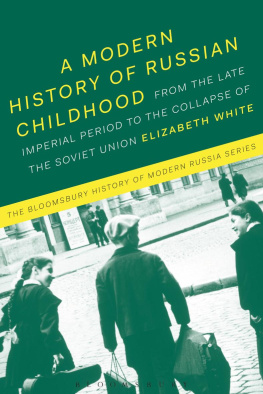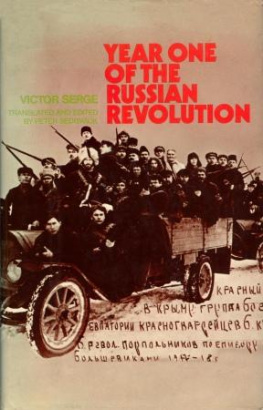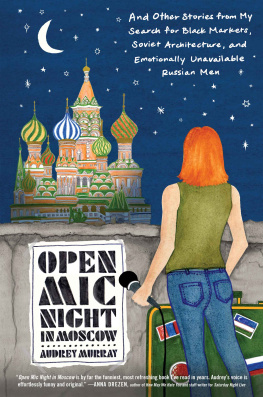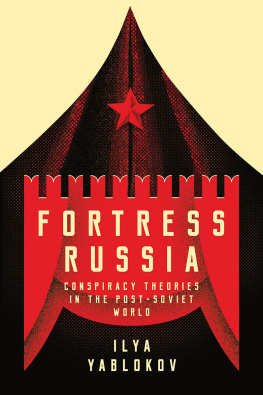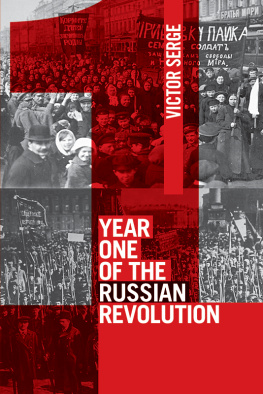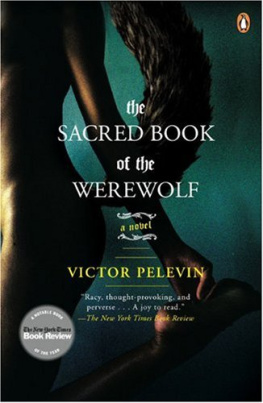Table of Contents
PENGUIN BOOKS
HOMO ZAPIENS
Victor Pelevin was born in 1962 in Moscow, where he lives today. His books include the novels Omon Ra, The Life of Insects, and Buddhas Little Finger, the novella The Yellow Arrow,and the story collections A Werewolf Problemin CentralRussia and The Blue Lantern, which won the Russian Little Booker Prize in 1993.
Praise for Homo Zapiens
[A] brilliant satire on the realities of post-Soviet Russia ...there are a number of wonderfully comic and thoughtful assessments of the nature of things under emerging capitalism in Homo Zapiens, including a series of delicious take-offs on ad copywriting, exposes of the new corruption of black cash flow into the arts as well as the commercial realm, and an amazingly outrageous explanation of the essence of Russian politics worthy of the imagination of Jorge Luis Borges or Italo Calvino.
The Washington Post
Tartarsky stands in for a whole generation trapped between a discredited Soviet past and a banal, Westernized future, and the absurdity of the situation sends him hunting through the seamy Muscovite underworld for some meaning at the bottom of it all. That he is coached on the way by the spirit of Che Guevara gives you the flavor of Pelevins darkly anarchic imagination.
Time
Victor Pelevin, the enfant terrible of post-Soviet Russian literature, is a cultural magpie, borrowing the hip poses of MTV and disaffected argot of the Beat poets and combining them with elements reminiscent of his great countrymen: the ferocious satire of Mikhail Bulgakov and the phantasmagorical sense of the absurd purveyed by the dissident writer Andrei Sinyavsky.
The NewYork Times
One of the most energetic and imaginative voices to reach our Western antennas. Los Angeles Times
A comic, philosophical tour de force ... The rendering of Tartarskys hallucinogenic genius confirms Pelevins status as one of todays most boldly adventurous literary minds. Weaving Russian and Western literature and pop culture with ancient Egyptian myth and Buddhism, Pelevin creates a multi-layered world where ideas, not characters, are the protagonists.
The Minneapolis Star Tribune
A brilliant, complex, multileveled, fully mature book ... Tartarsky is a traveler through the brutalities, banalities, and insanities of post-Soviet Russia a spiritual cousin of Candide, Gulliver, Tom Sawyer and Alice stepping into mad worlds ... Pelevin emerges as an acutely perceptive observer and analyst of social and economic realities. His rich plays on Babylonian history, on Egyptian pharaonic spirituality, on Biblical textual interpretation, on American marketing concepts and motivational folderol are exquisite. The Baltimore Sun
Pelevins invective is as finely honed and intimate as any satirist at work today ... his scathing riffs skewer not only the Russian mafia, drug dealers and spin doctors that hold contemporary Moscow captive, but the blind vanity and restless greed that fuel both the enshrined and black-market imitations of capitalism. Perhaps after perestroika there is only Pelevinism.
The Seattle Times
A social commentary on how life in contemporary Russia has become as shallow and pointless as everywhere else, and what better way to capture that phoniness than to use advertising as its dissolute epitome. Advertising Age

PENGUIN BOOKS
Published by the Penguin Group
Penguin Group (USA) Inc., 375 Hudson Street, New York, New York 10014. USA
Penguin Croup (Canada), 90 Eglinton Avenue East, Suite 700, Toronto, Ontario,
Canada M4P 2Y3 (a division of Pearson Penguin Canada Inc.)
Penguin Books Ltd, 80 Strand, London WC2R ORI., England
Penguin Ireland, 25 St Stephens Green, Dublin 2, Ireland (d division of Penguin Books Ltd)
Penguin Group (Australia), 250 Camberwell Road. Camberwell, Victoria 3124,
Australia (a division of Pearson Australia Group Pty Ltd)
Penguin Books India Pvt Ltd, 11 Community Centre, Panchsheel Park, New Delhi 110017, India
Penguin Group (NZ), 67 Apollo Drive, Mairangi Bay,
Auckland 1311, New Zealand (a division of Pearson New Zealand Ltd)
Penguin Books (South Africa) (Pty) Ltd, 24 Sturdee Avenue, Rosebank, Johannesburg 2196, South Africa
Penguin Books Ltd, Registered Offices; 80 Strand, London WC2R ORL., England
First published in Great Britain as Babylon by Faber and Faber Limited 2000
First published in the United States of America by Viking Penguin,
a member of Penguin Putnam Inc 2002
Published in Penguin Books 2003
This edition published in Penguin Books 2006
Copyright Victor Pelevin, 1999 Translation copyright Andrew Bromfield, 2000
All rights reserved
Originally published in Russian as Generation II
PUBLISHERS NOTE
This is a work of fiction. Names, characters, places, and incidents either
are the product of the authors imagination or are used fictitiously, and any
resemblance to actual persons, living or dead, business establishments,
events, or locales is entirely coincidental.
eISBN : 978-1-101-17526-2
1. Bromfield, Andrew. II Title.
PG3485,E38 H66 2002
891.7344 dc21 2001046967
The scanning, uploading and distribution of this book via the Internet or via any other means without
the permission of the publisher is illegal and punishable by law. Please purchase only authorized elec
tronic editions, and do not participate in or encourage electronic piracy of copyrighted materials. Your
support of the authors rights is appreciated.
http://us.penguingroup.com
To the Memory of the Middle Class
All trade marks mentioned in the text are the property of their owners. All rights are reserved. Names of goods and politicians do not indicate actual commercial products; they refer only to projections of elements of the politico-commercial informational field that have been forcibly induced as perceptual objects of the individual mind. The author requests that they be understood exclusively in this sense. Any other coincidences are purely accidental. The authors opinions do not necessarily coincide with his point of view.
CHAPTER 1
Generation P
Once upon a time in Russia there really was a carefree, youthful generation that smiled in joy at the summer, the sea and the sun, and chose Pepsi.
Its hard at this stage to figure out exactly how this situation came about. Most likely it involved more than just the remarkable taste of the drink in question. More than just the caffeine that keeps young kids demanding another dose, steering them securely out of childhood into the clear waters of the channel of cocaine. More, even, than a banal bribe: it would be nice to think that the Party bureaucrat who took the crucial decision to sign the contract simply fell in love with this dark, fizzy liquid with every fibre of a soul no longer sustained by faith in communism.
The most likely reason, though, is that the ideologists of the USSR believed there could only be one truth. So in fact Generation P had no choice in the matter and children of the Soviet seventies chose Pepsi in precisely the same way as their parents chose Brezhnev.
No matter which way it was, as these children lounged on the seashore in the summer, gazing endlessly at a cloudless blue horizon, they drank warm Pepsi-Cola decanted into glass bottles in the city of Novorossiisk and dreamed that some day the distant forbidden world on the far side of the sea would be part of their own lives.



